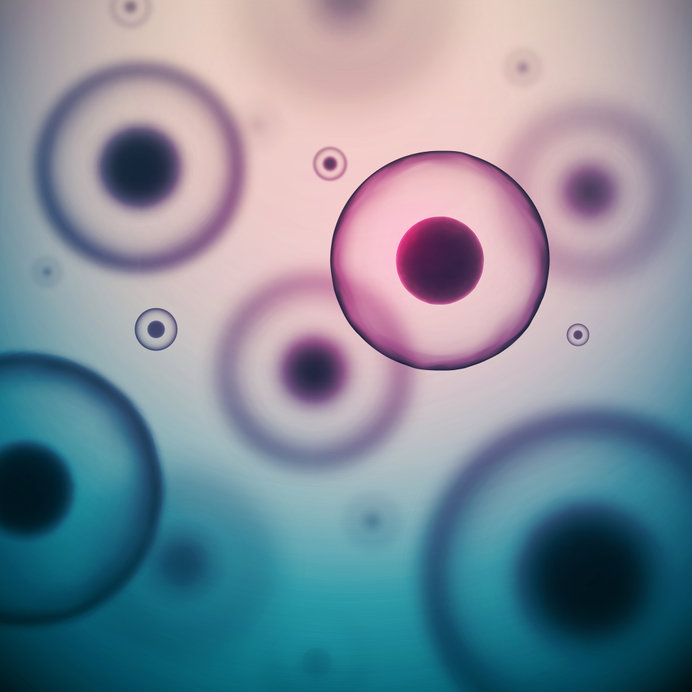Bacterial Triggers for Autoimmune Diseases

We’ve known for a long time that bacteria can trigger the immune system in such a way that autoimmune diseases are formed. Conditions such as reactive arthritis and Crohn’s disease have been associated with bacterial triggers for years. But it’s only been in the last 5-10 years that we have begun to understand the relationship between bacteria and autoimmunity. Especially when it comes to common bacteria our body sees every day.
Bacteria and our Body
Our world is not a sterile one. We are constantly coming into contact with bacteria every second of every day. Most of the time, our body doesn’t detect this bacteria as a problem. It’s learned, through a process called immune tolerance, to recognize which bacteria may kill us, and which bacteria just hangs around.
But it’s not quite that simple.
Most of our immune system is developed by the time we are 2-3 months old. Immune tolerance may start to set in at this time, but it also adapts to our changing environment as our body grows. This is largely due to our microbiome.
The microbiome in a group of organisms (bacteria, viruses, fungi…etc) that live in our body. Mostly in on our skin and in our digestive tract. The microbiome in the digestive tract can span all the way from the nose, to the anus. These organisms live with and around us 24/7. Which means that our immune system is constantly coming into contact with them.
When normal immune tolerance occurs, our immune system doesn’t care that most of this bacteria is hanging around. So long as it doesn’t over populate and take over (like SIBO, or intestinal dysbiosis). But in those that are predisposed to autoimmune diseases, certain types of bacteria can be triggering to flares in those conditions.
Bacteria and Autoimmune Diseases
With most autoimmune diseases, there is a problem with immune tolerance. Essentially there are genes that keep the immune system from recognizing bacteria and other human cells properly. Sometimes when immune cells come into contact with certain bacteria, it produces an immune reaction that makes the immune cells attack their own human cells.
How these bacteria cause the immune system to turn against it’s own body is somewhat unclear, but some believe it’s through a process called molecular mimicry. Molecular mimicry happens when pieces of the bacteria look like our own human cells. When the immune system comes into contact with those pieces, it mistakes our own cells for the bacteria and attacks them. This is not the only way that autoimmune occurs, but can explain some reactions.
It’s not just bacteria that can trigger autoimmune diseases. Other foreign objects such as fungus (candida), viruses (EBV) and parasites (blastocystis) can also trigger autoimmune reactions.
Bacterial Triggers
We are continuing to learn about the different bacterial triggers for autoimmunity. Newer research has been identifying specific strains of bacteria associated with conditions we previously didn’t know were associated with infection.
Once recent study showed that a common bacteria, Staphylococcus aureus, was found to stimulate systemic lupus (SLE) symptoms. Staph aureus is one of the most common bacteria found on the skin. It normally does not cause infections in people unless it gets into wounded skin or sensitive areas, or if someone is immunocompromised. Mutated versions of this bacteria are also responsible for MRSA. It is estimated that around half of all adults carry Staph. aureus on their body, and it’s much more higher in certain populations such as healthcare workers.
Another study found a correlation between Prevotella Copri and rheumatoid arthritis. Prevotella is commonly found in the gut mucosa from the mouth to the intestinal tract. It can be part of a healthy microbiome, and is found in around 50% of the population. It is found mostly in those populations that eat high fiber and low fat diets.
Rheumatoid arthritis has also been associated with a strain of Subdoligranulum bacteria. This type of bacteria is not a common one, but can be opportunistic, meaning that when given the right environment (with antibiotics or other immunosuppressants), that it can thrive.
Diagnosis and Treatment
Diagnosis and treatment can be hard for bacterial triggers in autoimmunity. Usually we use stool testing or other specialty testing to determine what types of bacteria are present first. Knowing whether or not those bacteria are playing a role in your autoimmune disease though will require treatment. Herbal antimicrobials can be used as well as controlled use of antibiotics to help get rid of dysbiotic bacteria.
Autoimmune markers should always be tested with treatment of bacteria triggers. This will tell you if the bacteria is related to the autoimmune disease or not. If you are concerned that bacterial triggers may be aggravating your autoimmune disease, talk with your doctor about testing and treatment. If your doctor is unwilling or unknowledgeable about the types of testing and treatment, our doctors on staff can help provide you with that help and information. Contact our office today for more details.

